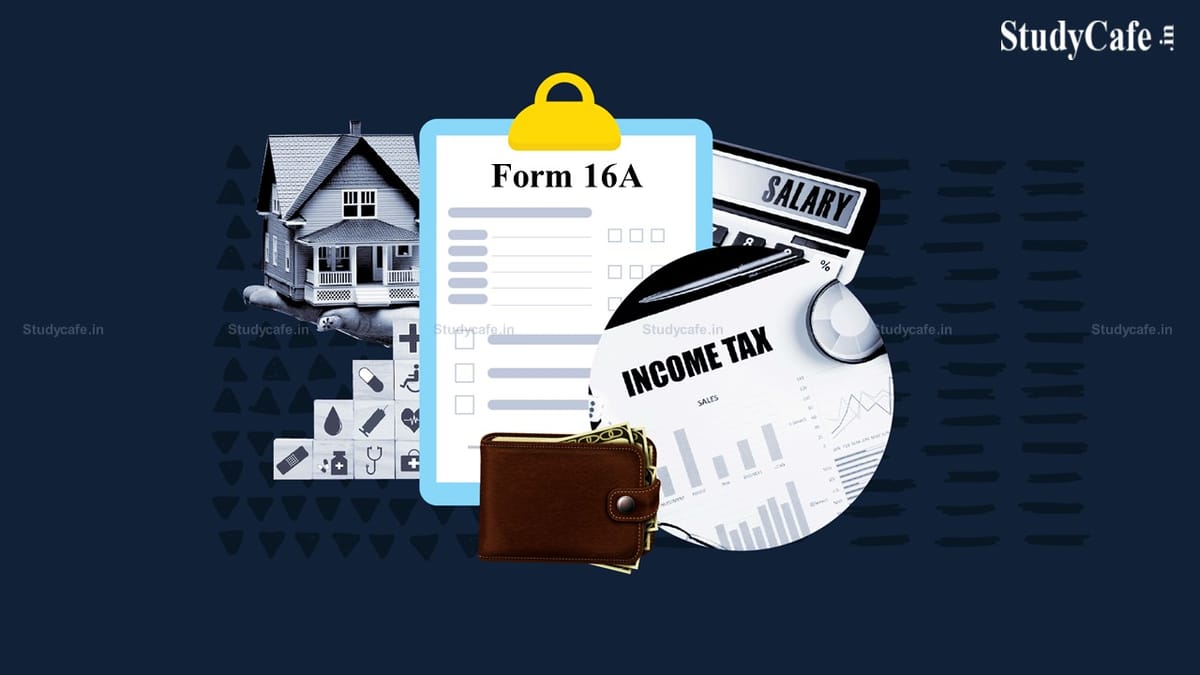Deepshikha | Dec 14, 2021 |

Form 16A: Meaning, Benefits and Components
Form 16 is a TDS certificate issued by the employer to the employee certifying that TDS has been deducted from their salary. Every employer in India is required by law to deduct a set amount of wages as TDS at an average rate of income tax. The main premise is that if your net earnings are above the Rs.2.5 lakh exemption level, your employer is entitled to take a specific sum from your income and pay it to the government. If it falls below the prescribed exemption limit, no deduction will be made in the name of TDS, and this form may not be sent to you. Note that if you have many employers, you’ll receive multiple Form 16.
Most of your details are divided into portions on Form 16, which has two main components. They’re crucial when it comes to filing IT returns. Let’s take a closer look at them.
TDS on pay is included in Form 16 (Part A). TDS deducted from income and amount paid as salary in each quarter of the financial year are detailed in Part A of Form 16. If an employee worked for more than one employer throughout the fiscal year, he will receive two Form 16 Part A forms.
The most significant thing that one is responsible for is filing income tax returns, for which we use Form 16. As a certificate of tax deduction, every employee receives an IT Form 16 from their employer. It certifies that your company has deducted TDS from your pay. If an employer deducts TDS from a salary, he must file Form 16 with the Indian tax authorities. Form 16 is only produced once a year, most often after the financial period has ended.
This is one of the most important tax forms. It covers all of the information you’ll need to file your Indian income tax return. Part A and Part B are two of the many parts of Form 16. Part A contains your personal information as well as some tax-related questions, while Part B has additional tax-related questions.
1. Employer’s name, TAN number, PAN card number, and address.
2. Employee’s name, PAN card number, and address
3. Information on taxes deducted and deposited with the government every quarter.
4. The tax year for which the TDS was deducted.
5. The length of time spent working for the company.
6. The payment acknowledgement number for TDS.
1. Individuals will benefit from filing an ITR while applying for a vehicle loan or otherwise. Tax returns can be requested by any large bank. Additionally, if your loan application is rejected or you are not getting as many loans as you wish, you can provide a copy of your ITR receipts.
2. If you don’t submit your returns, you won’t be able to carry forward any capital losses from one year to the next, to offset capital gains in later years. A long-term capital loss incurred in one year can be carried forward for up to eight years after the year in which the loss occurred. Only a year’s worth of long-term capital loss can be offset by a year’s worth of long-term capital gain. Short-term capital losses, on the other hand, can be offset by both long and short-term capital gains.
3. If you are travelling internationally, foreign consulates will require you to present ITR receipts from the previous two years at the time of your visa interview. Some embassies may require three years’ worth of ITR receipts, while others may only want the most current certificate.
4. According to experts, if someone wants to start a business and needs to fill out a government tender or two for it, they must produce their tax return receipts from the preceding five years. This is done to confirm your financial situation and whether or not you can meet your financial responsibilities.
5. Form 16 is not sent to businessmen, consultants, or firm partners. As a result, if their yearly income surpasses the basic exemption level of Rs 2.50 lakh, ITR receipts become even more crucial. ITR receipts will be the only proof of income and tax payment for self-employed people for all other types of financial transactions.
In case of any Doubt regarding Membership you can mail us at [email protected]
Join Studycafe's WhatsApp Group or Telegram Channel for Latest Updates on Government Job, Sarkari Naukri, Private Jobs, Income Tax, GST, Companies Act, Judgements and CA, CS, ICWA, and MUCH MORE!"